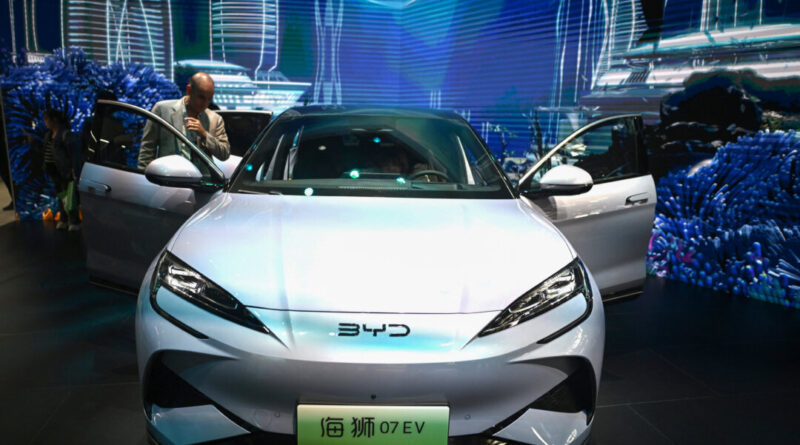Canadian EV Sector Receives Temporary Relief from Tariffs on Chinese Electric Vehicles, Trade Committee Advises
Tariffs imposed by Ottawa on Chinese-made electric vehicles (EVs) are seen as a temporary measure that provides a short reprieve for Canada’s EV industry. Elizabeth Kwan, a senior researcher with the Canadian Labour Congress, highlighted the need for Canadian manufacturers in the EV supply chain to fulfill their promises and kickstart production with the investments they have received.
Kwan made these remarks on Sept. 16 during her testimony before the Standing Committee on International Trade, which had initiated a study on safeguarding certain Canadian manufacturing sectors against imports and measures from China. She emphasized the urgent need for protective measures to prevent long-term damage to Canada’s Zero-Emission Vehicle (ZEV) industry resulting from Chinese dumping practices.
The Parliamentary Budget Officer (PBO) reported investments and government support totaling $52.2 billion for the EV supply chain between October 2020 and April 2024. Of this amount, federal support was estimated at $31.4 billion (60 percent), with provincial government support reaching $21.1 billion (40 percent), particularly from Ontario and Quebec.
Prime Minister Trudeau announced on Aug. 26 that Canada would impose a 100 percent tariff on Chinese-made EVs starting Oct. 1, along with a 25 percent tariff on steel and aluminum products from Oct. 15. These measures aimed to address China’s unfair advantage in these sectors.
This move aligns Canada with the United States, which initiated tariffs on Chinese imports in 2018 and plans to raise them in 2024. US President Joe Biden ordered an increase in tariffs on Chinese EVs from 25 percent to 100 percent by Aug. 1, while the European Commission announced tariffs on Chinese-made EVs ranging from 17.4 percent to 38.1 percent depending on the manufacturer.
‘Domestic Products’
Marty Warren, national director of the United Steelworkers Union, warned that Chinese EV manufacturers, heavily subsidized by China, pose a threat to over 600,000 Canadian workers in related industries. He called for increased use of Canadian steel and aluminum in public projects to counter Chinese trade practices.
Lawrence Herman, a fellow of the Canadian Global Affairs Institute, suggested amending Section 53 of Canada’s Customs Tariff Act to encompass national security considerations in dealing with China’s trade actions, as traditional remedies may not suffice. “We have rights under WTO GATT provisions to take action when Canada’s national security interests are affected,” he added.
Matthew Horwood contributed to this report.



